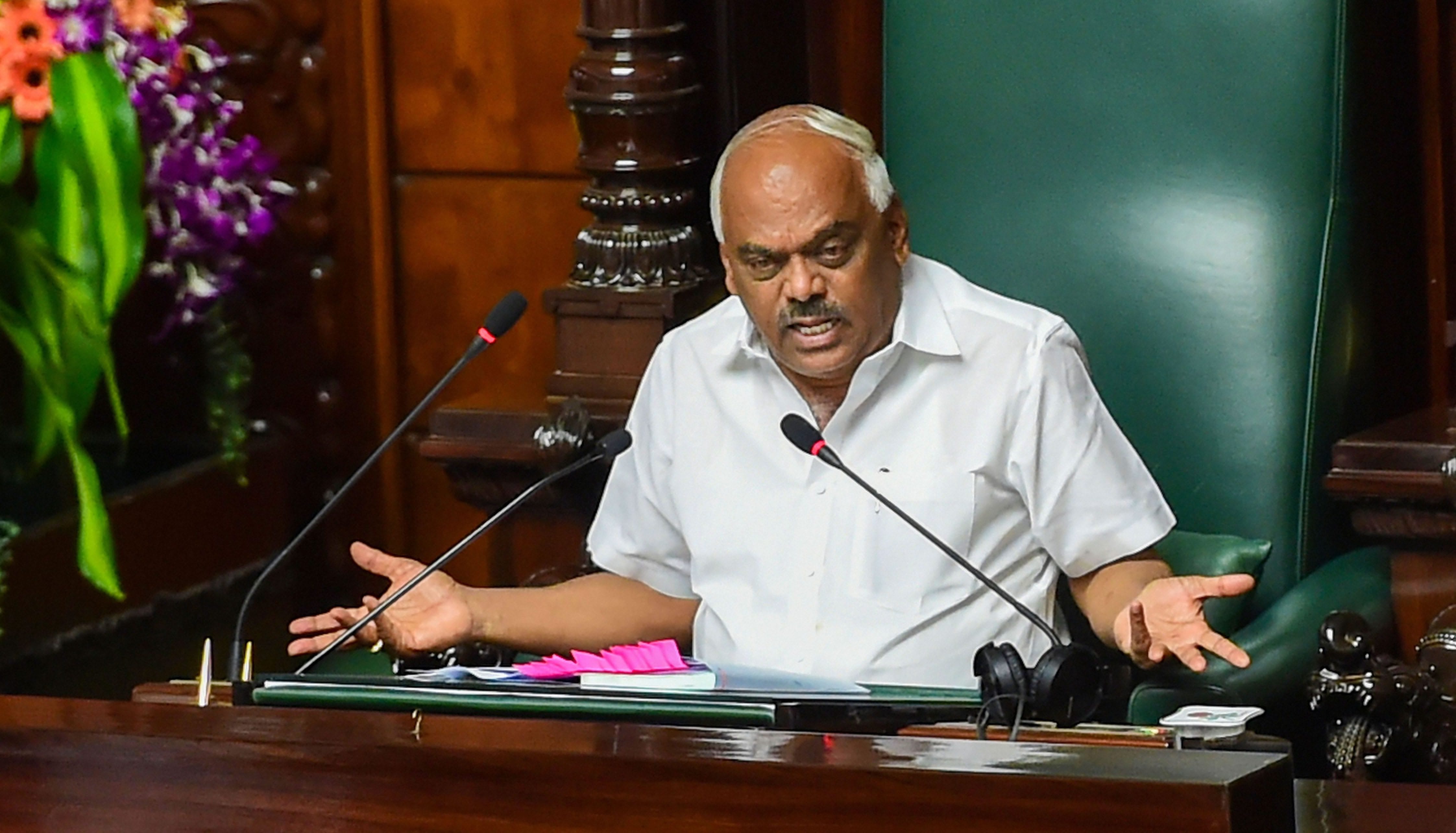
KR Ramesh Kumar, the Speaker who silenced critics with wit, writ and charm

Karnataka Speaker KR Ramesh Kumar on Monday (July 29) tendered his resignation, hours after newly sworn-in Chief Minister BS Yediyurappa won the trust vote in the Assembly and passed the supplementary budget prepared by the Congress-JD(S) coalition government.
Kumar, who sought forgiveness for any remarks made while discharging his duties, urged the House to take a re-look at the Tenth Schedule of the Constitution that discusses the anti-defection law in detail, and also take it up in the Lok Sabha so that other states can also learn from what has happened in Karnataka.
Also read: Karnataka CM Yediyurappa wins trust vote in smooth affair
Doing the dirty job
Kumar played a crucial role in the political crisis that erupted in the Karnataka Assembly in the recent weeks, following the resignations of Congress and JD(S) MLAs. The Kumaraswamy-led government fell after he lost the trust vote on July 23 in the Assembly. As many as 20 MLAs did not vote for the Kumaraswamy government including 15 rebel MLAs, two independents and two Congress MLAs who couldn’t attend due to health problems.
The Speaker disqualified 17 MLAs last week. Some of the disqualified MLAs contested the Speaker’s decision in the Supreme Court on Monday.
Last week, when the debate on the disqualification proceedings was underway, leading to delay in the trust vote, Kumar expressed disappointment with the way some media houses alleged him of being partisan towards the coalition government and thus delaying the trust vote.
“I am not obligated to anyone but to the aspirations of people of this state and the Constitution. I am nowhere responsible for the political crisis in Karnataka nor am I interested in the outcome of it,” he had said.
Master of repartee
Last year, when Kumar unanimously appointed the Speaker, he became the first person in the history of Karnataka Assembly to serve as Speaker for a second term. BJP’s five-time MLA Suresh Kumar, who is likely to succeed Ramesh Kumar, had withdrawn his nomination to unanimously elect Ramesh to the post.
Ramesh, who is known for his sharp sense of repartee had come under criticism for letting the coalition take control of the Assembly proceedings. Besides his sarcastic comments, jokes and anecdotes, Kumar, during his term was also known for silencing critics, both in the Congress and the BJP, with sharp arguments – a trait that also helped keep the House in order.
In a witty speech on the motion of thanks to the Governor’s address in 2014, Kumar sympathised with former CM Yediyurappa, who was forced to step down in 2011 due to corruption charges, stating, “He (Yediyurappa) was not the only corrupt leader in the state, but he, unlike others, did not know how to avoid getting caught.”
He went on to suggest that then chief minister Siddaramaiah may consider opening a college to train people in how to avoid getting caught after committing misdeeds.
At times, his remarks were controversial and did not escape media glare. In a bizarre analogy, when former chief minister Kumaraswamy earlier this year referred to an audio clip which purportedly had Yediyurappa offering ₹50 crore to the Speaker as bribe, Kumar compared himself to a rape-survivor for being repeatedly questioned for his integrity.
Past achievements
The six-time MLA from Srinivasapur in Kolar district held the Speaker’s post between 1994-1999 when the undivided Janata Dal was in power under chief ministers HD Deve Gowda and JH Patil.
As a legislator, he took interest in bringing water to the rain-starved Kolar region. Once, he even urged legislators from Bengaluru to send at least water to Kolar, considering that the water level in his district had gone below 1,600 ft. Years later, the Karnataka government proposed a ₹1,300 crore project called Koramangala-Challaghatta Valley Project (KC Valley) to pump treated sewage water into Kolar and Chikkaballapur lakes to improve the ground water situation.

